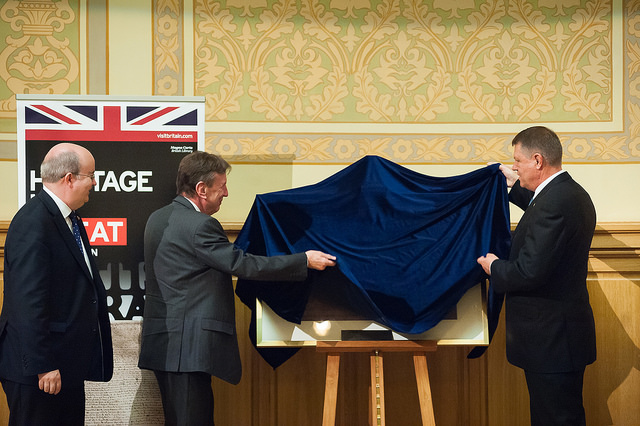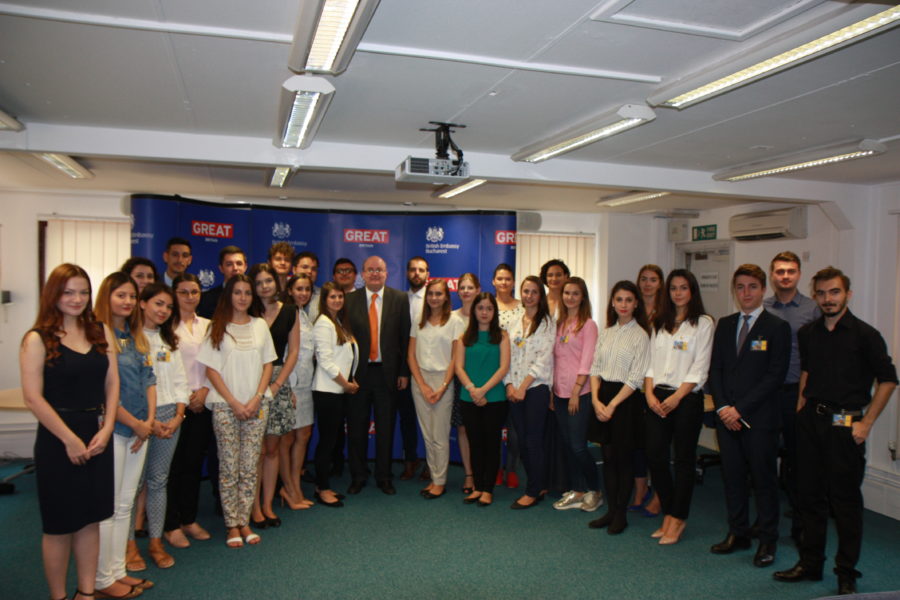16th September 2016
The International Day of Democracy celebrated in Romania
Following a United Nations General Assembly resolution in 2007, the International Day of Democracy is commemorated on 15 September each year. The day provides an opportunity to think about democracy, what it offers, and the consequences for those people who do not live in democratic societies.
The British government believes that democracy is the form of government most conducive to long term peace and sustainable development. There is a clear correlation between societies which are prosperous and secure, and those in which democracy flourishes. By “democracy” we don’t just mean the holding of free and fair elections, although these are of course important, but something much wider; the existence of properly functioning institutions and the rule of law, protecting people from all forms of discrimination and upholding their human rights. It is about people having a say in the decisions that affect them.
Democracy is deep-rooted in the United Kingdom. The 800th anniversary of the signing of the Magna Carta last year provided an opportunity to celebrate the long evolutionary democratic journey the United Kingdom has made. We organised with the Inner Temple in November a seminar in Bucharest to explore the continuing legacy of the “Great Charter” in both Romania and Britain. The Romanian President, His Excellency Klaus Iohannis, spoke at the event about achievements and ongoing challenges on rule of law issues in Romania.

The referendum on the UK’s membership of the European Union held on 23 June this year was a good example of British democracy in action; a vote on an issue which really mattered, with a high turnout and a clear verdict. The British government is now working to deliver the verdict of the British people that we should leave the European Union.
The UK government’s work to commemorate the International Day of Democracy in 2016 is focused on the importance of “civil society space”. This is about governments allowing citizens and their organisations the freedom they need to influence and participate in the governance of their society. British NGOs and charities work closely with many inspiring Romanian civil society groups in support of efforts to bring about positive change for communities in need of support. For example ACCEPT, which works to promote respect for the LGBTI community in Romania, and an array of organisations working with Roma communities countering the challenges of social exclusion.
The fight against corruption is another important area in which the UK and Romania are working together, for example at the London Anti-Corruption Summit in May this year. We are delighted that Romania has now produced a new anti-corruption strategy, underlining the determination of the Romanian authorities to tackle the scourge of corruption.

My congratulations and respect to all those who are working hard to establish and cement democratic values and institutions around the globe.
While the points you highlight around the UK’s EU membership referendum — topic, turnout, verdict — are all very valid, I feel there are issues which stop it being held up as an especially good example of democracy. The wrangling which has followed relating to the constitutional status of the vote highlights the importance of clearly laying down the rules, implications and legal status of a vote before proceeding.
In this case there appears to have been little discussion before polling day of how referenda fit into a representative democracy such as that in the UK. Conversely there has been much debate on this point following it. This has to act as a warning: the UK is fortunate to have a stable democratic process and a general appreciation that the will of the people should be honoured; however it has to be highlighted as an example of how less established, potentially more corrupt, democracies might stumble or, worse still, use such a device as an elaborate smoke-screen.
While it is a bitter pill to swallow, the UK must concede that the democratic process in this instance was somewhat flawed. That said: rather than berate itself it must learn and, vitally, pass these lessons on to our friends who may have somewhat less developed democracies. As well as promoting all that is good about the UK an ambassador must be tasked with helping our allies learn from our mistakes so that they may avoid the pitfalls which we have discovered through our own development.